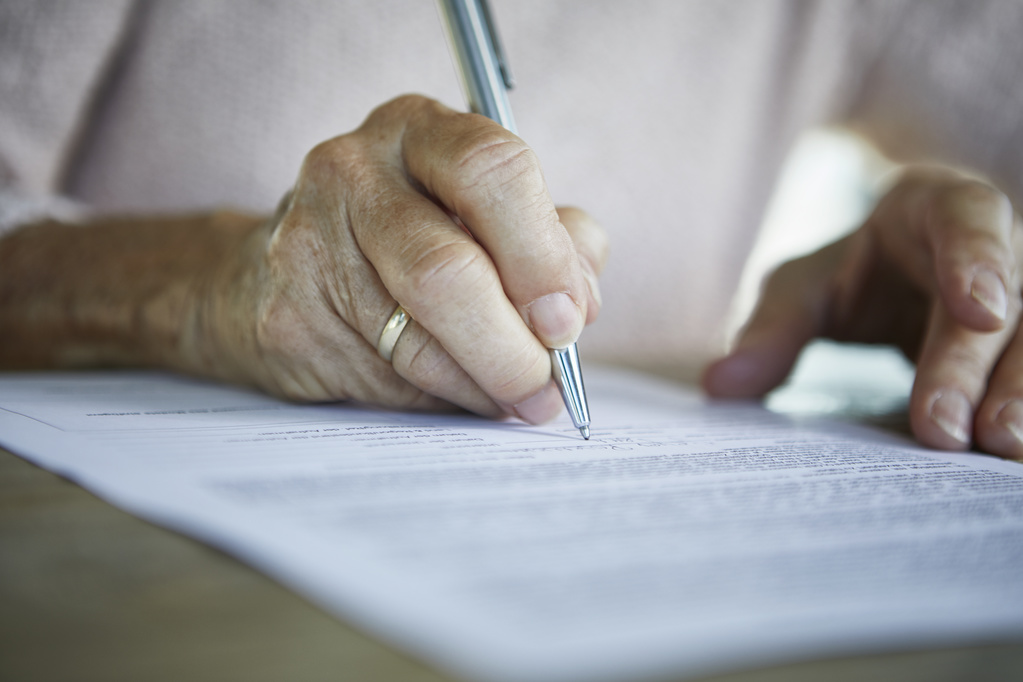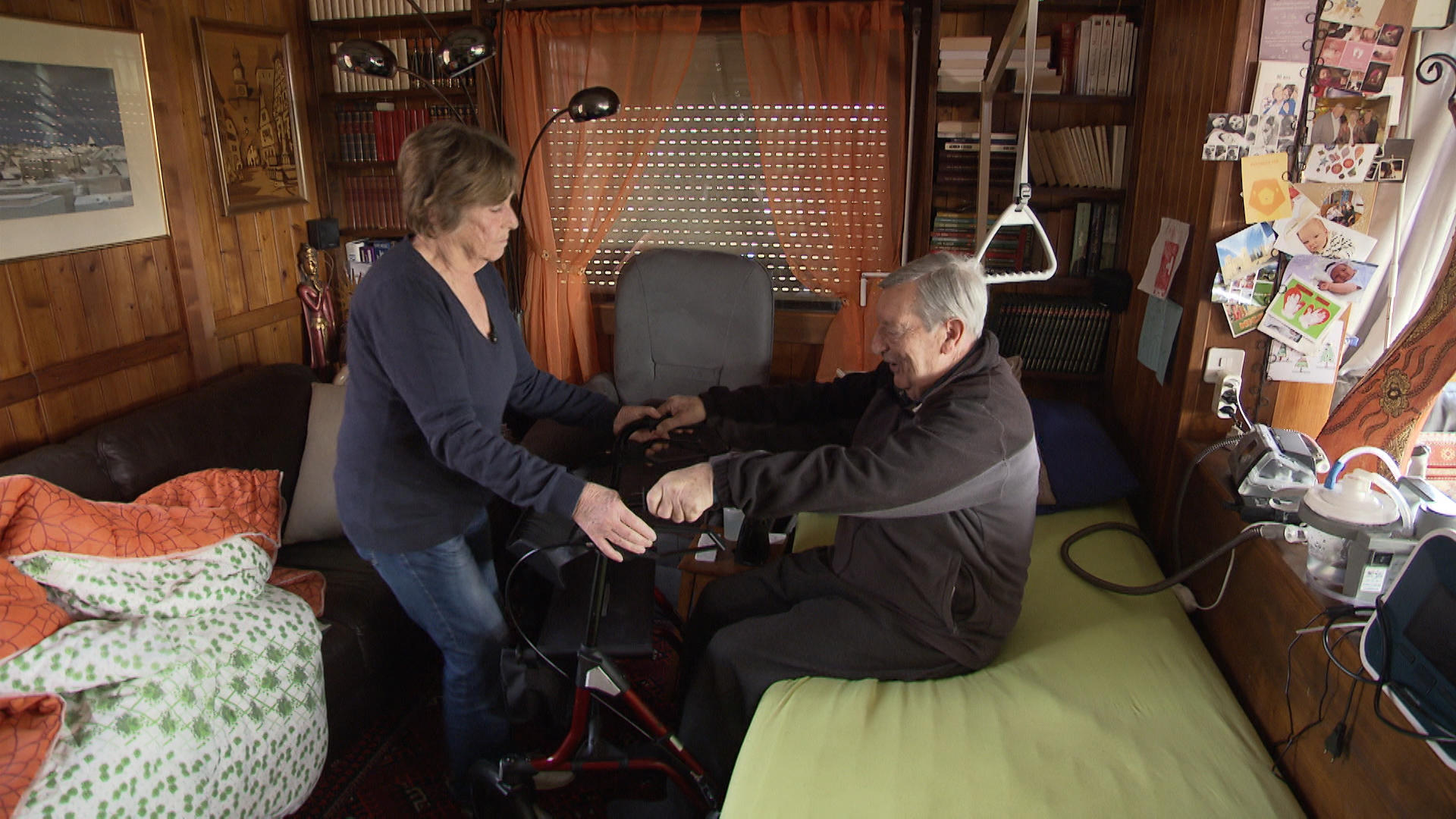Coronavirus prompts many Swiss to make living wills

The Covid-19 pandemic has led many in Switzerland to consider their end-of-life arrangements. The number of requests for “living wills” – directives for medical intervention – skyrocketed during the lockdown.
“I would not like to end up as a vegetable. I don’t want to have to go through that. I don’t want to feel like I can’t breathe anymore,” Susanne Degives, an 87-year-old from Geneva told the Swiss public broadcaster RTS in June. “I believe that people who have reached a certain age should just be let go in peace.”
She reached her conclusion as she saw people she knew suffering from the coronavirus – they underwent intensive therapy and have still not fully recovered. “They couldn’t speak, they couldn’t breathe, and two months later, they are still in poor health,” she said.
This experience prompted Degives to make her own living will. Many others in Switzerland have been doing the same to ensure that they can decide what happens at the end of their lives.
In a living will, also known as an “advance healthcare directive” or “patient decree”, a person states in advance what kinds of medical interventions they would want to keep them alive. Living wills only come into force if the person is no longer able to communicate or make a decision when it’s required.
Source: Pro Senectute
Uptick in certain language regions
“In German-speaking Switzerland, before the coronavirus crisis, 50% of people over 65 had the paperwork for making a living will but had not completed it. We believe that the number of completed forms has now greatly increased,” said Tatjana Kistler, a spokesperson for the advocacy organisation for the elderly Pro Senectute.
A survey commissioned by Pro Senectute in 2017, consisting of 1,200 telephone interviews with people between 18 and 99 years old, found that only 22% of people in Switzerland had made a living will. The largest share (47%) was people between 60 and 70 years old. The proportion of people who had made a living will in the German-speaking part of the country (27%) was over the national average, whereas in the French-speaking (10%) and Italian-speaking parts (5%) it was considerably lower.
But during the lockdown, demand for living will paperwork increased by more than 50% in French and Italian-speaking regions, according to Kistler.
“In this period of extreme crisis, the images people saw on television caused fear,” Alain Huber of Pro Senectute, a Switzerland-wide advocacy organisation for the elderly, told RTS. “We heard many comments from elderly people, along the lines of: I have had a good life, now I’m 90, and I don’t want to die like that.”
Making other arrangements
Living wills are part of the portfolio of personal documents called DOCUPASSExternal link, prepared by Pro Senectute, which allows any person to record all their instructions, requests and wishes in case of serious illness. Besides the living will, the portfolio includes power of attorney, which appoints someone to assume responsibility for the signatory’s everyday affairs, manage their finances and act for them in case of mental incapacity. DOCUPASS also offers materials for making arrangements in case of death (including any wishes regarding organ donation); the last will and testament; and a summary card with the name and address of a person to contact in case of emergency.
In the wake of the coronavirus crisis, Pro Senectute has noticed increased interest in these arrangements, according to Kistler. But “even before the pandemic, we noticed that much younger people were expressing interest in the idea of personal arrangements, either because their own parents want to do this, or because they have become more aware that it is advantageous to make personal arrangements as early as possible,” she said.

In compliance with the JTI standards
More: SWI swissinfo.ch certified by the Journalism Trust Initiative




You can find an overview of ongoing debates with our journalists here. Please join us!
If you want to start a conversation about a topic raised in this article or want to report factual errors, email us at english@swissinfo.ch.